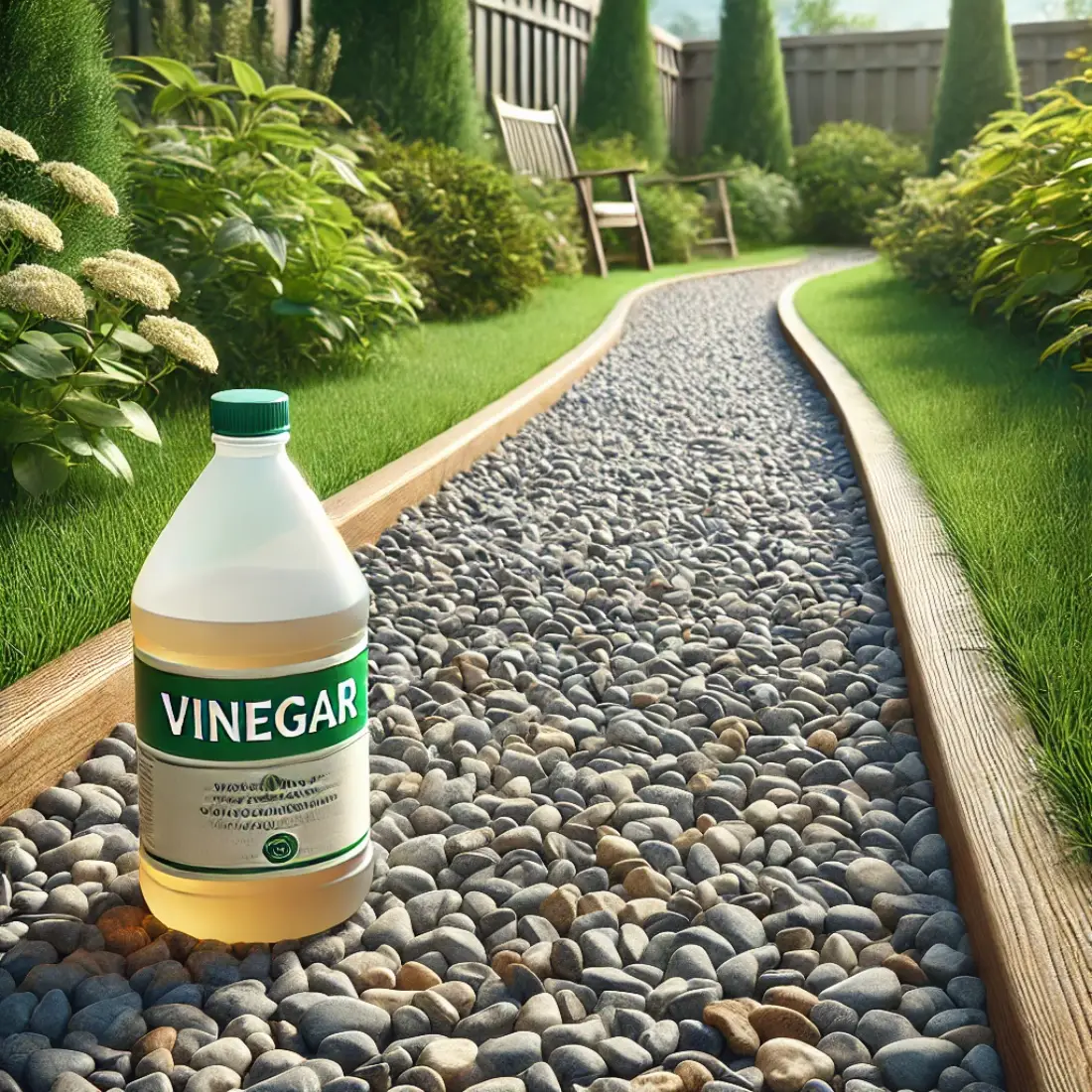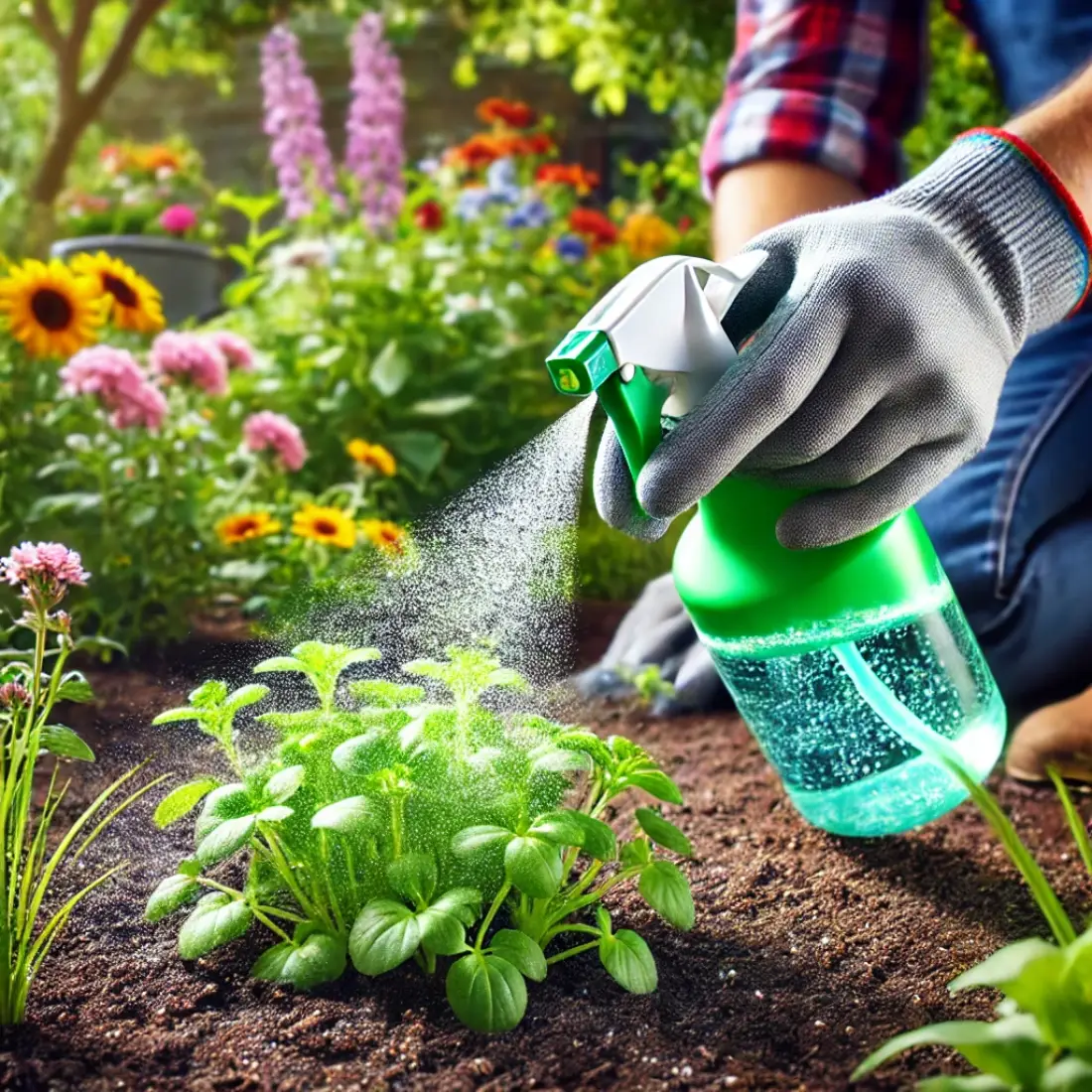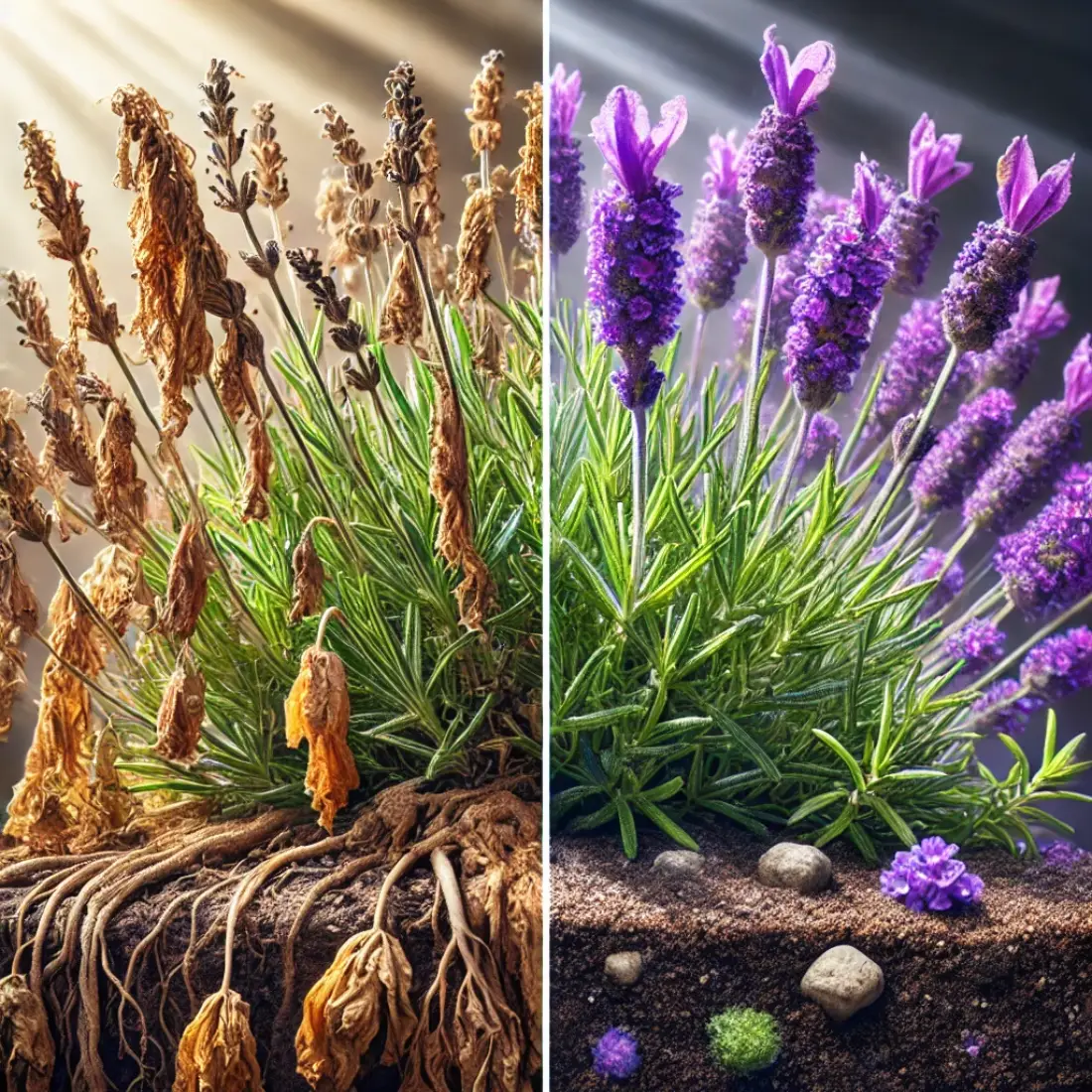Weeds are a persistent problem for gardeners, often overtaking flower beds, lawns, and driveways. Chemical weed killers are commonly used, but they come with environmental and health concerns. Vinegar offers a natural and effective alternative for controlling unwanted plants.
- Vinegar is an effective, natural alternative to chemical weed killers.
- It works best on young, annual weeds.
- Higher concentrations of acetic acid increase effectiveness.
- Safe for the environment but can harm desired plants if not used carefully.
How Does Vinegar Kill Weeds?
Vinegar is an effective natural weed killer primarily due to its acetic acid content. Acetic acid is the active ingredient in vinegar that gives it the sour taste and strong smell. When applied to weeds, acetic acid breaks down the plant’s cell membranes, causing the plant to dry out and die.
The mechanism is relatively simple: the acetic acid in vinegar draws moisture out of the leaves, stems, and roots of the weed. This dehydration process is particularly effective on young, tender weeds that have not yet established deep root systems. For mature or perennial weeds, multiple applications may be necessary, as they can be more resilient.
The effectiveness of vinegar as a weed killer depends largely on the concentration of acetic acid. Household vinegar typically contains around 5% acetic acid, which is sufficient for dealing with small, young weeds. For tougher weeds, horticultural vinegar with 20-30% acetic acid concentration is recommended. However, higher concentrations require careful handling, as they can cause skin burns and harm desirable plants.
Unlike chemical herbicides, vinegar does not discriminate between weeds and other plants. Therefore, it is crucial to apply it carefully, targeting only the weeds to avoid damaging surrounding vegetation. The non-selective nature of vinegar makes it an ideal choice for areas like driveways, sidewalks, and gravel paths where there are no desired plants nearby.
Types of Vinegar for Weed Killing
When using vinegar as a weed killer, the type and concentration of vinegar are crucial factors in determining its effectiveness. There are several types of vinegar, each with varying levels of acetic acid content.
Household White Vinegar: This is the most common type of vinegar, typically containing around 5% acetic acid. It is easily available and inexpensive, making it a popular choice for minor weed problems. Household vinegar works well on young, small weeds but may require repeated applications for tougher or more established plants.
Apple Cider Vinegar: Similar to household white vinegar, apple cider vinegar also contains about 5% acetic acid. While it can be used for weed killing, it is generally more expensive than white vinegar and offers no additional weed-killing benefits. It is more often chosen for its other uses in cooking and health remedies.
Horticultural Vinegar: This type of vinegar is specifically formulated for agricultural and gardening purposes, containing between 20% and 30% acetic acid. Horticultural vinegar is significantly more potent than household varieties and is highly effective against more mature and resilient weeds. However, due to its high acidity, it must be handled with care to avoid skin burns and damage to desired plants.
How to Use Vinegar as a Weed Killer
Before using vinegar to kill weeds, gather your materials and ensure you have the necessary safety gear. Wear gloves and goggles to protect your skin and eyes from the acetic acid.
For household vinegar, use it directly from the bottle, but for horticultural vinegar, consider diluting it slightly with water. Always test the mixture on a small area first to check for any unintended effects on nearby plants.
Step-by-Step Guide to Applying Vinegar
- Choose the Right Day: Apply vinegar on a sunny, dry day. The sun enhances vinegar’s effectiveness by helping to dehydrate the weeds.
- Direct Application: For small weeds, directly pour vinegar onto the weeds, ensuring thorough coverage of the leaves and stems.
- Spray Bottle Method: For larger areas, fill a spray bottle with vinegar and target the weeds. Hold the bottle close to avoid drift and spray until the weeds are saturated.
- Repeat Applications: Some weeds may require multiple applications. Check the weeds after a few days and reapply vinegar if they show signs of life.
Enhancing Vinegar’s Effectiveness
To boost vinegar’s weed-killing power, you can mix it with salt and dish soap. Add a cup of salt and a tablespoon of dish soap to a gallon of vinegar. The salt helps to dehydrate the weeds further, while the soap helps the mixture adhere to the leaves. This mixture is particularly effective but should be used with caution, as salt can affect soil health.
Common Mistakes to Avoid
- Over-application: Using too much vinegar can damage the soil and affect nearby plants.
- Windy Days: Avoid spraying on windy days to prevent vinegar from drifting onto desired plants.
- Ignoring Soil Health: Overuse of vinegar, especially with salt, can alter soil pH and harm beneficial microorganisms.
FAQs about Using Vinegar as a Weed Killer
Does vinegar kill all types of weeds?
Vinegar is most effective on young, annual weeds with shallow roots. It is less effective on mature, perennial weeds with deep root systems and may require multiple applications or additional methods for complete eradication.
Can vinegar harm my garden soil?
Repeated use of vinegar, especially in large quantities or when mixed with salt, can alter soil pH and negatively impact soil health. This can harm beneficial soil microorganisms and affect the growth of future plants.
How often should I apply vinegar to weeds?
The frequency of application depends on the type of weed and the concentration of vinegar used. Generally, you should reapply every few days until the weeds are completely eradicated. Multiple applications may be necessary for tougher weeds.
Is vinegar safe for pets and children?
Vinegar is generally safe, but it can cause irritation. Keep pets and children away from treated areas until the vinegar has dried. Higher concentrations of acetic acid should be handled with caution to prevent skin burns and eye irritation.
What is the best time of day to apply vinegar to weeds?
The best time to apply vinegar to weeds is during the hottest part of the day when the sun can aid in the dehydration process. Applying vinegar on a sunny, dry day enhances its effectiveness.
Can I use any type of vinegar for weed killing?
Household white vinegar (5% acetic acid) is commonly used for small, young weeds. Horticultural vinegar (20-30% acetic acid) is more effective for tougher weeds but requires careful handling due to its higher acidity.
Will vinegar kill grass as well as weeds?
Yes, vinegar is non-selective and can kill grass along with weeds. Use caution when applying vinegar near your lawn or desired plants to avoid accidental damage.
How long does it take for vinegar to kill weeds?
Weeds typically show signs of distress within a few hours of application, and they may die within a day or two. However, some weeds may require multiple applications for complete eradication.
Is vinegar a permanent weed solution?
Vinegar kills the above-ground parts of the weeds, but it may not reach the roots, especially in perennial weeds. This means that some weeds may regrow, and repeated applications may be necessary for ongoing control.
Can I mix vinegar with other substances to improve its effectiveness?
Yes, you can mix vinegar with salt and dish soap to enhance its weed-killing power. The salt helps to dehydrate the weeds further, and the soap helps the mixture adhere to the leaves. Use this mixture with caution, as salt can impact soil health.










